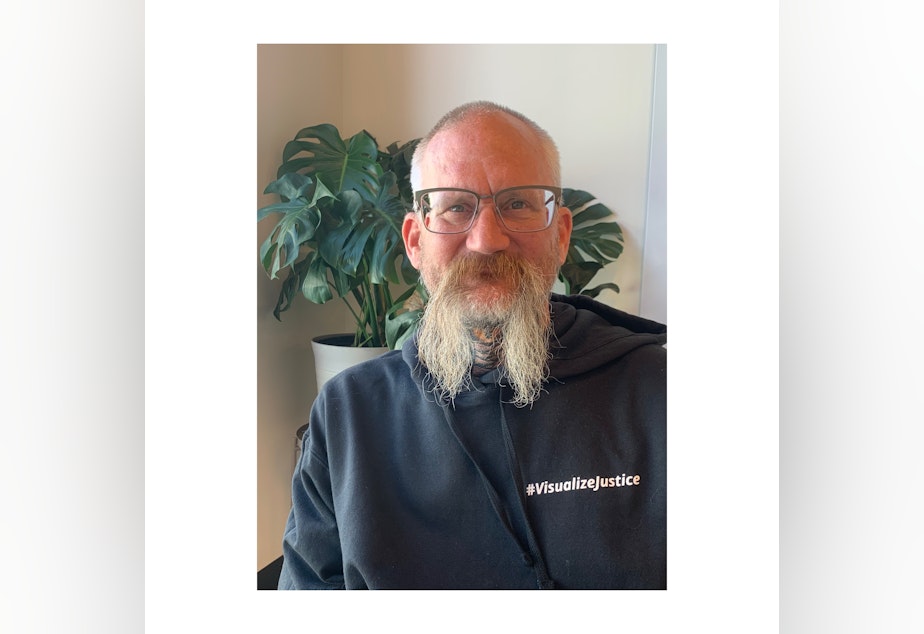New Washington state laws give debt relief to people exiting prison

Starting this summer, people convicted of crimes in Washington state will face fewer court-ordered fees. That’s thanks to the state’s third law in recent years aimed at easing the debt burden of “legal financial obligations,” or LFOs, for people with criminal convictions.
It’s part of a national movement to reduce the impact of these fines on people exiting prison, many of whom have little ability to pay them. HB 1169, the new law, eliminates what had been a mandatory $100 fee for DNA collection. It also exempts juveniles and indigent adults from what had been a mandatory fee of $500 per felony and $250 per gross misdemeanor to fund victim support services. (The law does not change restitution owed to victims.)
It’s the third in a series of laws championed by Rep. Tarra Simmons (D-Bremerton), who testified before the Washington State Legislature on the burden of court fines and fees before she was elected to the House in 2020.
Simmons is the first formerly incarcerated person to serve in the state legislature. She said her own sentence for theft and drug crimes included $6,000 in court fines and fees.
“This was not victim restitution, this was all money to fund the court system,” she said. While in prison, the state charged interest, so upon her release a decade ago, her debt had grown to $7,600.
Sponsored
“And then they were garnishing my minimum wage paycheck to pay off these fines and fees, which took away money that I needed for housing costs to raise my children,” Simmons said.
In 2018, legislators eliminated the 12% interest on fines and fees with HB 1783, in addition to ending the practice of jailing people unable to pay that debt. A second law passed last year, HB 1412, set a time limit of 10 years after release from prison for enforcing payment of these fines. Simmons said she would still like to seek future changes to some financial penalties, such as the restitution owed by juveniles. But the trio of bills represents the accomplishment of her most pressing goals.
Before 2018, “Washington was one of the worst states in the nation” in its practices around court-ordered fees, Simmons said. “Now I’m happy to report we are one of the best.”
Kyrrah Nork has seen the impact of those changes in his own life. He was formerly incarcerated for crimes related to his drug addiction. Nork said when he left prison in 2016, he owed no restitution, but $18,000 in fines and interest to the court. Thanks to Washington’s recent legislation, he’s been able to petition the court to eliminate the interest and older fines so he now owes $590. He makes monthly payments of $20 per case.
“It’s enabled me to have peace of mind, it’s enabled me to feel more financially secure," Nork said. "It’s enabled me to see a light at the end of the tunnel that, you know what? I pay $20 a month for a couple years — it’s gone!”
Sponsored
Nork said under the newest law, he would likely have qualified as indigent and would've never been assessed the mandatory fees in the first place. “I see this as an awesome move forward,” he said.
“I was a homeless drug addict, sleeping behind dumpsters, shooting dope," he added. "Now I’m a college professor and the IT director for a nonprofit.”
Nork teaches at Seattle Central College and handles IT for the organization Living with Conviction, where he also volunteers to help other formerly incarcerated people petition the court for elimination of eligible fees and interest. You can find that form here.
Rep. Simmons noted HB 1169 doesn't just eliminate the fees in future cases — people who meet the criteria will also be able to petition the court to eliminate those mandatory fee amounts from their existing debts.
Simmons said efforts to roll back court fees have been largely bipartisan, although lawmakers have had to navigate concerns about replacing the lost fees with other funding sources.
Sponsored
King County Superior Court Judge David Keenan said these fees overall have been neither just nor effective.
“From the judiciary’s point of view, the problem with LFOs is that almost all of them are imposed on people that cannot afford to pay, will never be able to afford to pay,” he said.
A report by the Washington Institute for Public Policy estimated that 90% of the fees imposed by superior courts from 2014 to 2016 went uncollected.
“It doesn’t provide stable funding, and keeps people under the court’s jurisdiction forever," Keenan said. "So I think that’s been part of the momentum around this issue, from the court’s perspective.”
He estimated that three-quarters of the people sentenced in superior court could soon be exempt from this penalty because they qualify as indigent and have a public defender.
Sponsored
Superior court judges currently must evaluate a mandatory victim penalty assessment of $500 for every felony conviction. For gross misdemeanors the penalty is $250. The fees fund positions in prosecutors’ offices that help victims navigate the court process.
Colleen McIngalls is the director of victim services with the King County Prosecutor’s Office. She said she was initially concerned that HB 1169 would eliminate funding for victim notification and other victim services that her office is required to provide by law. But she said lawmakers resolved those concerns by contributing $4 million from the general fund over two years. People who do not qualify as indigent will still be subject to the mandatory fees.
McIngalls said legislators ultimately found a “win-win” for victim services and reducing offenders’ debts.
“That is more reliable for victim service funding, and then we also reduce the impact of LFOs on offenders," she said. "So I think that this is a great step in the right direction.”
Lawmakers also appropriated funding to maintain the DNA database account.




